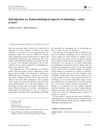 25 citations,
May 2014 in “Facial Plastic Surgery”
25 citations,
May 2014 in “Facial Plastic Surgery” PRFM may help treat hair loss, especially in mild cases.
[object Object] 4 citations,
March 2022 in “Pharmaceutics” Regenerative cellular therapies show promise for treating non-scarring hair loss but need more research.
 23 citations,
January 2021 in “Biomedicine & Pharmacotherapy”
23 citations,
January 2021 in “Biomedicine & Pharmacotherapy” DHT stops hair regrowth in mice, similar to human hair loss.
 January 2012 in “Elsevier eBooks”
January 2012 in “Elsevier eBooks” Hair transplantation is highly effective with careful technique and attention to patient needs.
 26 citations,
May 2013 in “Marine Drugs”
26 citations,
May 2013 in “Marine Drugs” Ishige sinicola, a type of seaweed, may help hair grow by blocking a hair loss-related enzyme and boosting important cell growth.
 17 citations,
September 2017 in “Journal of Cosmetic Dermatology”
17 citations,
September 2017 in “Journal of Cosmetic Dermatology” Women with PCOS in North China often have hirsutism and acne, with hirsutism linked to metabolic issues.

The document concludes that accurate diagnosis and management of PCOS are crucial due to its associated health risks.
 2 citations,
May 2001 in “Current problems in dermatology”
2 citations,
May 2001 in “Current problems in dermatology” The conclusion is that effectively treating hair disorders is difficult due to the complex factors affecting hair growth and more research is needed to improve treatments.
 68 citations,
September 2003 in “British Journal of Dermatology”
68 citations,
September 2003 in “British Journal of Dermatology” Shrinking skin cancer increases the chance of cancer in nearby lymph nodes.
 January 2016 in “Hematology & Transfusion International Journal”
January 2016 in “Hematology & Transfusion International Journal” Platelet Rich Plasma (PRP) injections can improve hair count, thickness, and strength in people with androgenic alopecia.
 74 citations,
January 2015 in “Asian Journal of Transfusion Science”
74 citations,
January 2015 in “Asian Journal of Transfusion Science” Platelet-rich plasma (PRP) injections can effectively increase hair density and thickness in people with androgenic alopecia, without major side effects.
 14 citations,
October 2016 in “Psychoneuroendocrinology”
14 citations,
October 2016 in “Psychoneuroendocrinology” Finasteride affects brain processes related to neurotransmission and metabolism, potentially helping with neuropsychiatric conditions.
 9 citations,
January 2015 in “Springer eBooks”
9 citations,
January 2015 in “Springer eBooks” The document concludes that managing PCOS involves treating symptoms, regulating periods, and reducing health risks, with specific medications for fertility and metabolic issues.
1 citations,
January 2021 in “European Journal of Inflammation” Methylated flavonoids may effectively reduce depression and inflammation caused by finasteride.
 9 citations,
June 2021 in “International Journal of Pharmaceutics”
9 citations,
June 2021 in “International Journal of Pharmaceutics” Using polymeric micelles to deliver spironolactone topically could improve wound healing in skin affected by glucocorticoids.
 10 citations,
November 2014 in “Sexual medicine reviews”
10 citations,
November 2014 in “Sexual medicine reviews” Effective, well-tolerated, and affordable treatments are needed for recurrent ischemic priapism.
 14 citations,
May 2013 in “American Journal of Physiology-endocrinology and Metabolism”
14 citations,
May 2013 in “American Journal of Physiology-endocrinology and Metabolism” Removing myelin protein zero-like 3 in mice leads to better metabolism and resistance to obesity.
 38 citations,
December 2009 in “Therapeutic Advances in Medical Oncology”
38 citations,
December 2009 in “Therapeutic Advances in Medical Oncology” The conclusion suggests that prostate cancer should be classified by castration status and that new therapies targeting androgen receptor signaling show promise.
 1 citations,
September 2015 in “Reviews in Endocrine and Metabolic Disorders”
1 citations,
September 2015 in “Reviews in Endocrine and Metabolic Disorders” The document discusses new insights into how hormones affect male sexual health and related conditions.
 1 citations,
January 2022 in “Transgender health”
1 citations,
January 2022 in “Transgender health” Hormone therapy in transgender individuals can increase acne and affect hair growth and loss.
 137 citations,
March 2006 in “Cns Drug Reviews”
137 citations,
March 2006 in “Cns Drug Reviews” Finasteride treats enlarged prostate and hair loss, but may cause side effects in some patients.
 July 2021 in “British Journal of Dermatology”
July 2021 in “British Journal of Dermatology” Low testosterone levels may contribute to female pattern hair loss in men.
 January 2011 in “Yearbook of Dermatology and Dermatologic Surgery”
January 2011 in “Yearbook of Dermatology and Dermatologic Surgery” Acne and hair loss are not good indicators of hormone imbalance in PCOS, but excessive body hair is.
 40 citations,
March 1982 in “British Journal of Dermatology”
40 citations,
March 1982 in “British Journal of Dermatology” Young women with diffuse hair loss may have low SHBG levels, which could lead to more active testosterone and contribute to their hair loss.
[object Object]  7 citations,
September 2014 in “Beni-Suef University Journal of Basic and Applied Sciences”
7 citations,
September 2014 in “Beni-Suef University Journal of Basic and Applied Sciences” Cuscuta reflexa extracts and an isolate promoted hair growth and could be natural treatments for hair loss.
 November 2004 in “Medical Journal of Indonesia”
November 2004 in “Medical Journal of Indonesia” Hormonal imbalances can cause skin and hair problems in women, and treatments that block male hormones can help.
 28 citations,
November 2020 in “Journal of Controlled Release”
28 citations,
November 2020 in “Journal of Controlled Release” A new hair loss treatment uses tiny needles to deliver a drug-loaded lipid carrier, promoting hair growth more effectively than current treatments.
 3 citations,
January 2018 in “International Journal of Advances in Medicine”
3 citations,
January 2018 in “International Journal of Advances in Medicine” The most common skin problems in polycystic ovarian disease are hirsutism and acne, and managing these symptoms is key for treatment.
 24 citations,
September 2001 in “Journal of The American Academy of Dermatology”
24 citations,
September 2001 in “Journal of The American Academy of Dermatology” Women's ovarian hormones and adrenal androgens change throughout life, affecting hair loss and health.
 1 citations,
January 2013 in “Advanced Biomedical Research”
1 citations,
January 2013 in “Advanced Biomedical Research” Men with more severe hair loss had a lower risk of schizophrenia, but hair loss and testosterone levels were not linked.




























